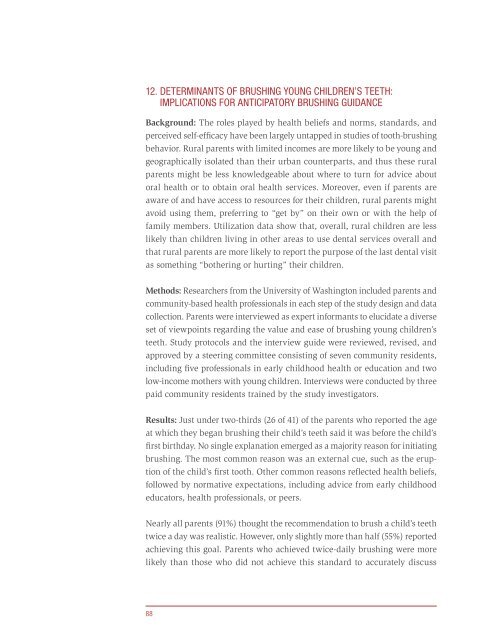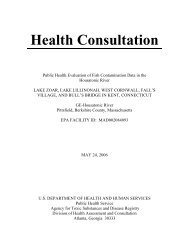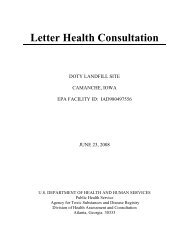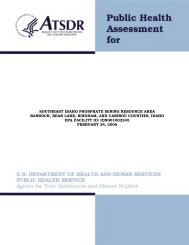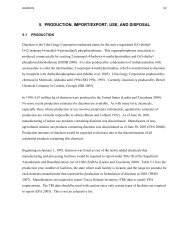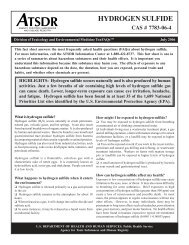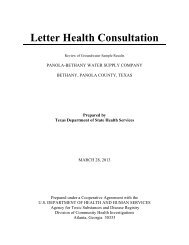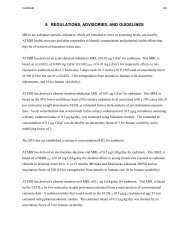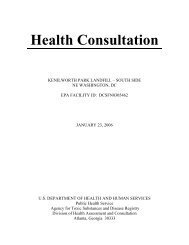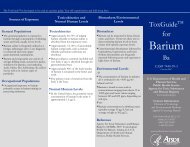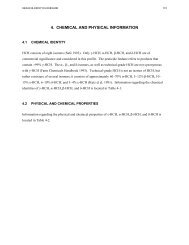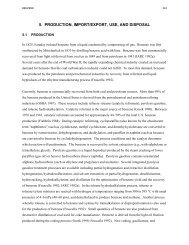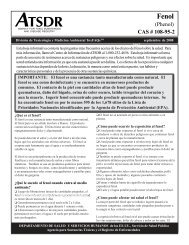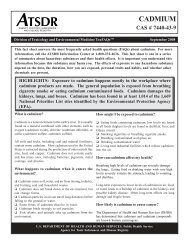Principles of Community Engagement (Second Edition)
Principles of Community Engagement (Second Edition)
Principles of Community Engagement (Second Edition)
You also want an ePaper? Increase the reach of your titles
YUMPU automatically turns print PDFs into web optimized ePapers that Google loves.
12. DETERMINANTS OF BRUSHING YOUNG CHILDREN’S TEETH:<br />
IMPLICATIONS FOR ANTICIPATORY BRUSHING GUIDANCE<br />
Background: The roles played by health beliefs and norms, standards, and<br />
perceived self-efficacy have been largely untapped in studies <strong>of</strong> tooth-brushing<br />
behavior Rural parents with limited incomes are more likely to be young and<br />
geographically isolated than their urban counterparts, and thus these rural<br />
parents might be less knowledgeable about where to turn for advice about<br />
oral health or to obtain oral health services Moreover, even if parents are<br />
aware <strong>of</strong> and have access to resources for their children, rural parents might<br />
avoid using them, preferring to “get by” on their own or with the help <strong>of</strong><br />
family members Utilization data show that, overall, rural children are less<br />
likely than children living in other areas to use dental services overall and<br />
that rural parents are more likely to report the purpose <strong>of</strong> the last dental visit<br />
as something “bothering or hurting” their children<br />
Methods: Researchers from the University <strong>of</strong> Washington included parents and<br />
community-based health pr<strong>of</strong>essionals in each step <strong>of</strong> the study design and data<br />
collection Parents were interviewed as expert informants to elucidate a diverse<br />
set <strong>of</strong> viewpoints regarding the value and ease <strong>of</strong> brushing young children’s<br />
teeth Study protocols and the interview guide were reviewed, revised, and<br />
approved by a steering committee consisting <strong>of</strong> seven community residents,<br />
including five pr<strong>of</strong>essionals in early childhood health or education and two<br />
low-income mothers with young children Interviews were conducted by three<br />
paid community residents trained by the study investigators<br />
Results: Just under two-thirds (26 <strong>of</strong> 41) <strong>of</strong> the parents who reported the age<br />
at which they began brushing their child’s teeth said it was before the child’s<br />
first birthday No single explanation emerged as a majority reason for initiating<br />
brushing The most common reason was an external cue, such as the eruption<br />
<strong>of</strong> the child’s first tooth Other common reasons reflected health beliefs,<br />
followed by normative expectations, including advice from early childhood<br />
educators, health pr<strong>of</strong>essionals, or peers<br />
Nearly all parents (91%) thought the recommendation to brush a child’s teeth<br />
twice a day was realistic However, only slightly more than half (55%) reported<br />
achieving this goal Parents who achieved twice-daily brushing were more<br />
likely than those who did not achieve this standard to accurately discuss<br />
88


